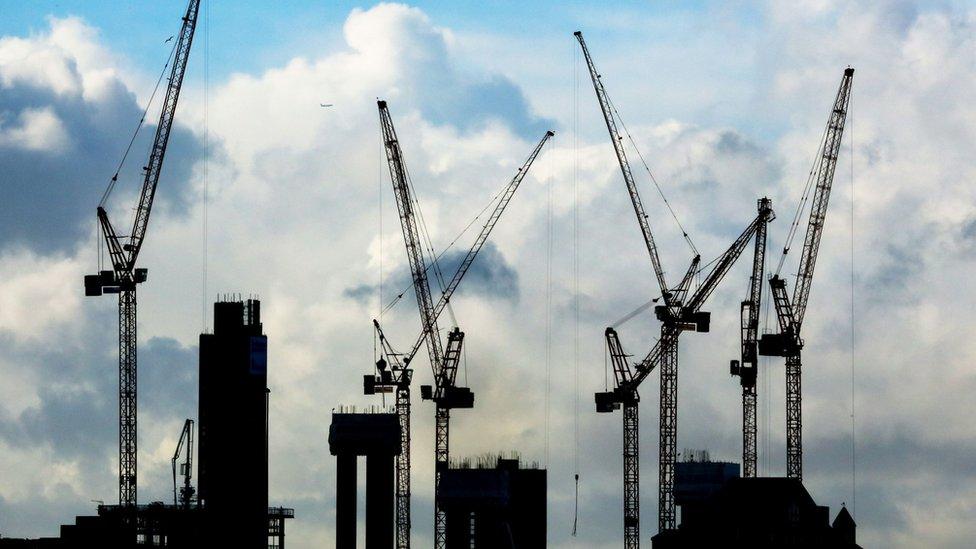Renters 'stuck' in Bristol's booming property market
- Published
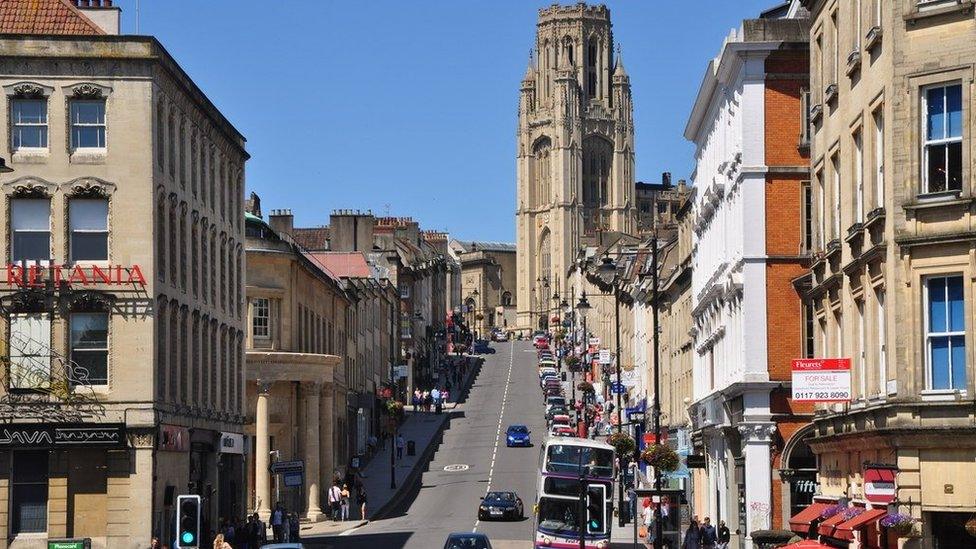
Financial advisor Samuel Gee says there is a false sense house prices will continue to rise in Bristol
Bristol's skyrocketing property market is leaving increasing numbers of people "stuck" in rented accommodation, according to a mortgage expert.
Average house prices in the south west rose by 12.9% to £308,497 last year while Bristol's average price was even higher at £363,674, according to website Zoopla, external.
Financial advisor Samuel Gee said Bristol had a "clear lack of housing".
The city's council said "out of control rent prices" need addressing.
On Friday, the government released, external its "Fairer Private Rented Sector" White Paper which it claimed seeks to "fundamentally reform the private rented sector and level up housing quality in this country".
Its ambitions include abolishing "no-fault" evictions, ensuring private landlords adhere to the Decent Homes Standard and introducing a housing ombudsman covering all private landlords.
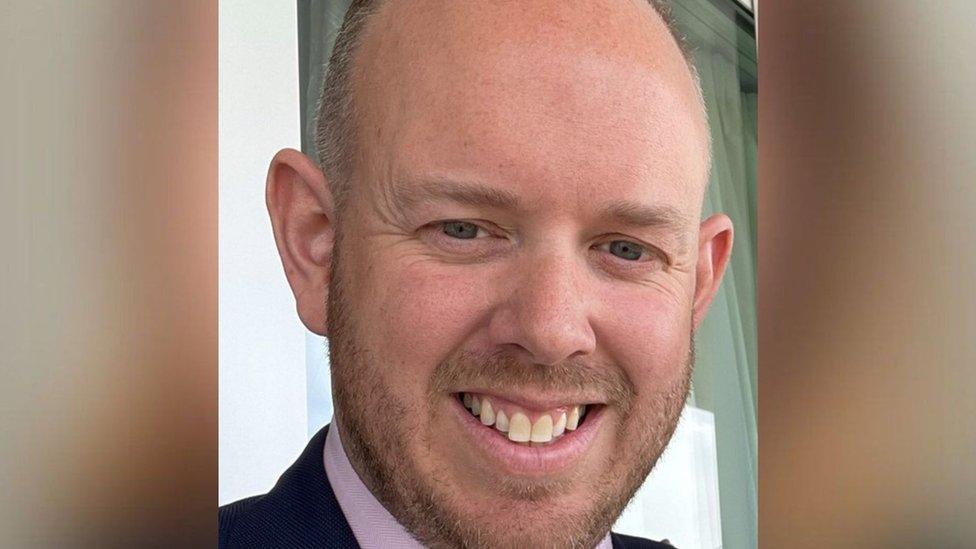
Mr Gee said there was a "clear lack" of housing in Bristol
Bristol's mayor Marvin Rees and the council's lead for housing Tom Renhard have welcomed the proposals, external but warned that more needs to be done to secure protections for renters and tackle out of control rent prices.
They spoke as Mr Gee claimed that properties in Bristol are often sold for higher than their asking price, creating "hysteria" in the market and a false sense that values will continue to rise.
'Ultra high rents'
Mr Gee blamed this on a mix of low interest rates making borrowing cheaper, government incentives for home buyers and "ultra high rents", which attract investors and make it harder for young people to save for a deposit.
"The problem is the first rung of the ladder, the first time buyer," he explained.
"People on average UK salaries generally can't get on the property ladder in Bristol."
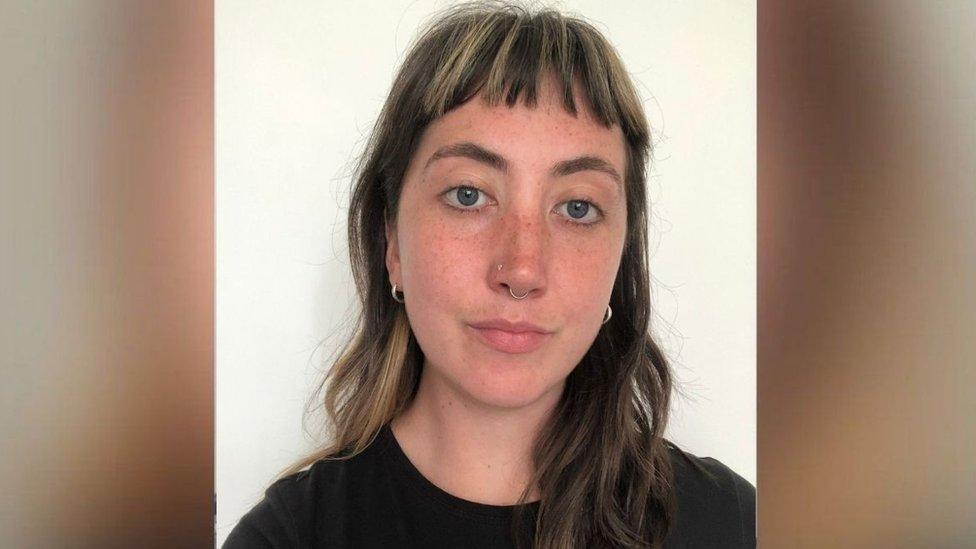
Elsie Bradley Middle says rents are "out of control" in Bristol
'Losing battle'
Elsie Bradley Middle works on a city farm in Bristol for 30 hours a week and spends around half her wage renting a room in a three-person house share in Southville.
The 23-year-old is also a co-chair of the city's branch of the Acorn union which is campaigning for rent caps.
"Some people are working two to three days a week for their landlords and the rest for themselves," she said.
"Rents are out of control in Bristol, we need direct action by the council and central government."
She said while she is "lucky" to have parents living in the city she could move in with if she wanted to save for a deposit, that was not possible for many people.
"It must feel like a losing battle for many with the prospect of buying a home getting more and more out of reach," she said.
"While many landlords like the stability of a decent long-term tenant and often don't have frequent (or any) rent rises, others keep pushing the rent up, probably because they are able to quite easily do so.
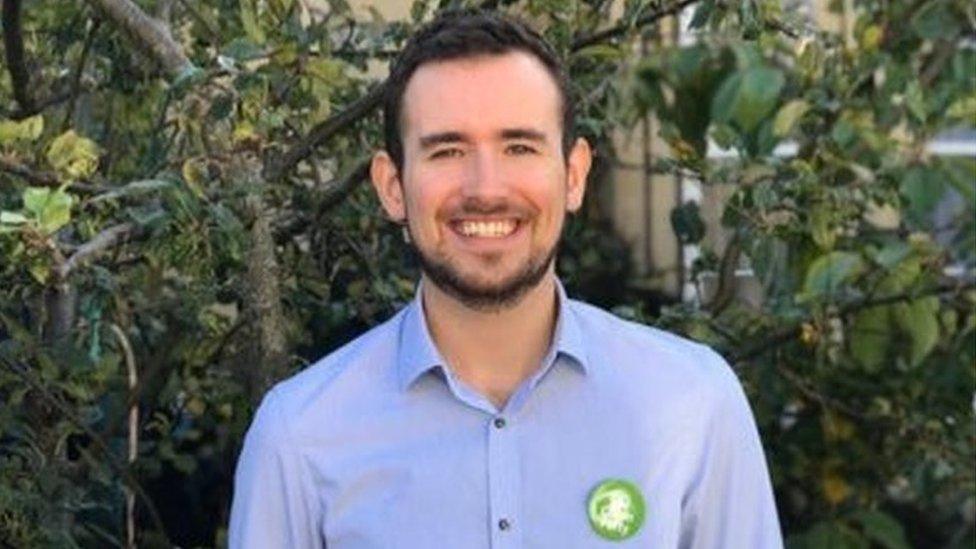
Green councillor Tom Hathaway said he is "anxious" about his rent going up
"We've seen rents increase hugely in Bristol - I know of one that has increased by 50% over four years, because people are willing to pay the rents to secure a property."
Green councillor and fair rental campaigner Tom Hathaway said he and his partner are "anxious" about what will happen when the rental contract on their Clifton property comes up for renewal.
'Spiralling rents'
"We're lucky that we're both in stable jobs, but for those who aren't or those that are already struggling with the cost of living crisis, spiralling rents are creating a very real poverty trap," he said.
"It's clear this is unsustainable. We need the government to devolve rent control powers.
"These could include stabilising the rate of increase as is done in some other European cities, providing longer term or lifetime rental contracts, removing Section 21 (no-fault) evictions, and regulating Airbnb which has been shown to have an impact on rent prices in an area.
"Without these sort of interventions, there will be broad parts of the city where no one on average wages can live. These are the nurses, cleaners, posties - the key workers we celebrate, as well as the creatives.
"They keep the city running and form a vital part of Bristol's culture and there's a real risk we could all lose out if nothing is done soon."
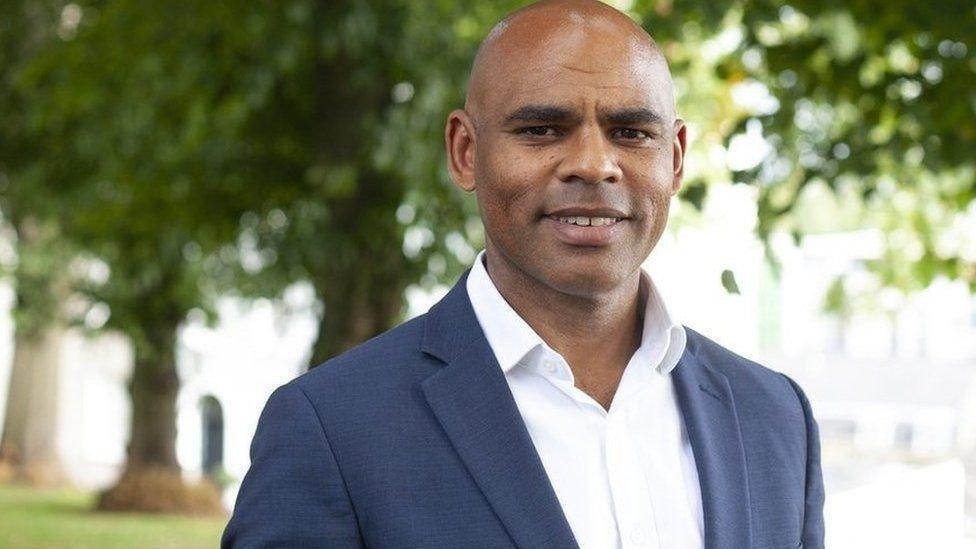
Mr Rees said the country had a "crippling lack of social and affordable housing"
A spokesman from the Department for Levelling Up said: "We're investing £11.5bn to deliver more affordable homes in England.
"The South West has received £1bn of this investment, and between 2010 and 2021, we've delivered over 63,500 affordable homes in the region.
"We understand the pressures people are facing with the cost of living, particularly the most vulnerable in society, which is why we're supporting them in the months ahead with a £37bn package of financial support."
Mr Reeves said: "Whilst the proposals put forward provide greater protections and flexibility for renters, they do very little to improve access to housing for the thousands of low and middle-income households struggling to survive in the private rental market.
"The housing crisis we face is a multi-faceted challenge which is fuelled by a crippling lack of social and affordable housing."
He said that in choosing to ignore the need for controls to manage the affordability of the sector, the government continues to exclude households from a source of vital housing and adds pressure to already creaking council and local housing association services.
"Until we address the issue of affordability, we will remain some way short of overcoming this crisis."

Follow BBC West on Facebook, external, Twitter, external and Instagram, external. Send your story ideas to: bristol@bbc.co.uk , external
- Published28 October 2021
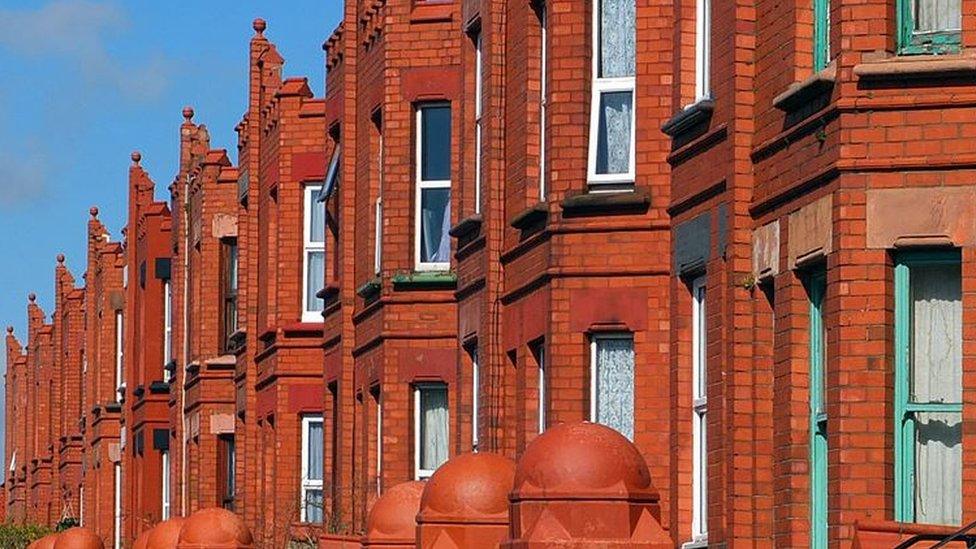
- Published31 July 2021
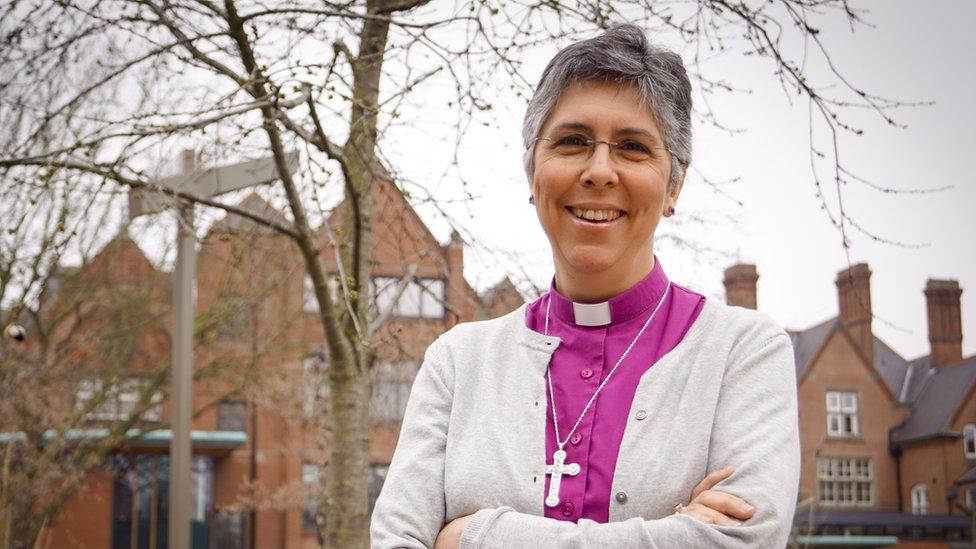
- Published4 March 2021
